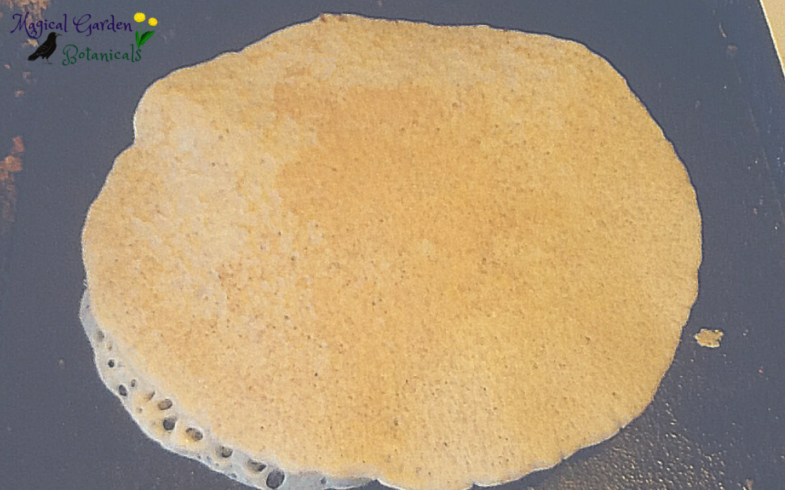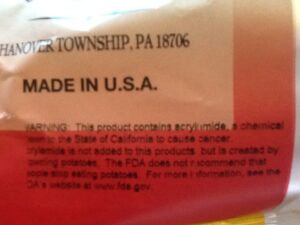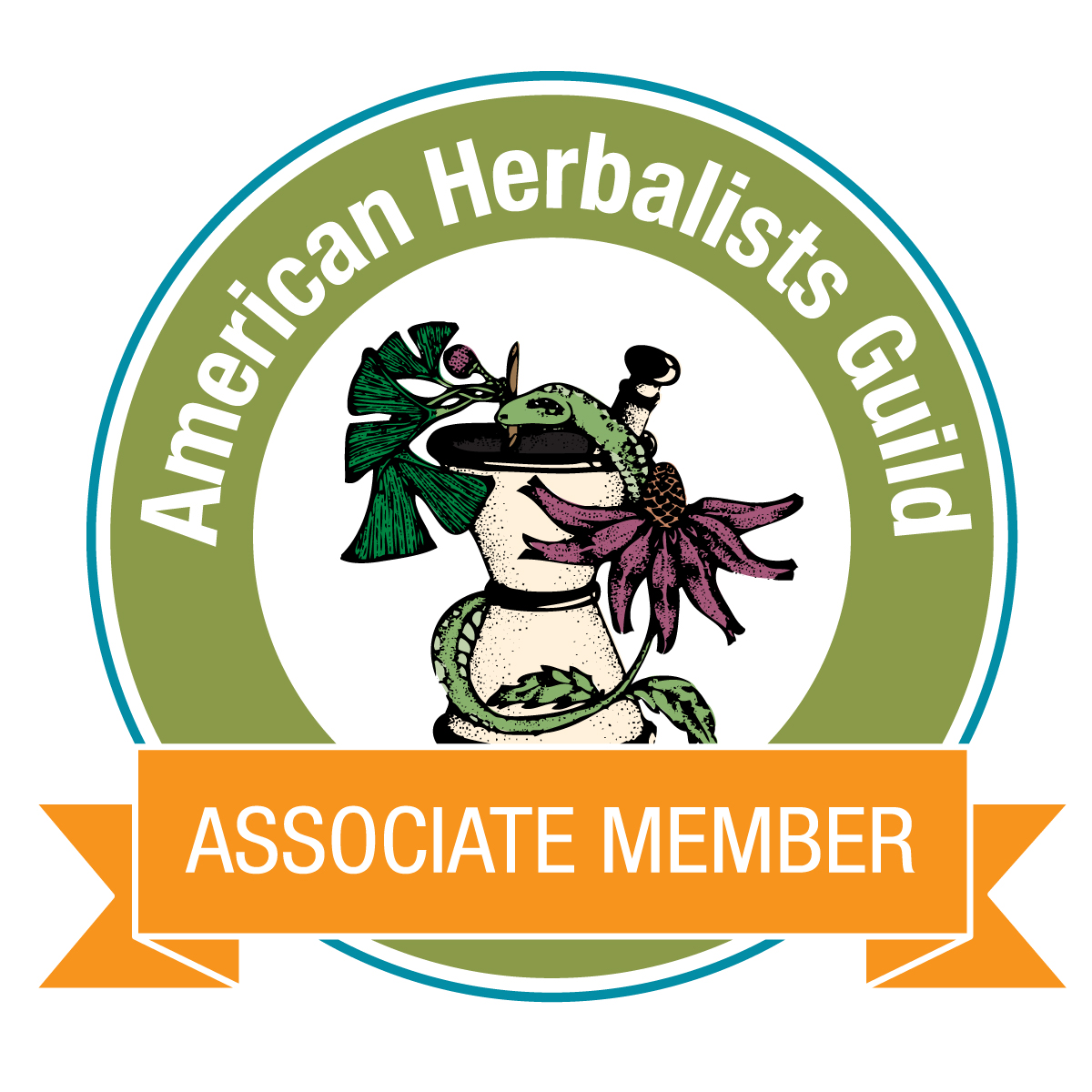Acryla-what?
It isn’t acrylic nails or acrylic paint…acrylamide. You can’t see, touch, smell, or taste it. So what is it?
Acrylamide is a chemical that can be created as a result of high temperature cooking, such as frying, toasting, roasting and baking. It forms in foods due to sugars and an amino acid, asparagine, which are normally present in foods.
 Warning label on a bag of potato chips.
|
Some manufacturers are making an effort to label their products to warn consumers of the possible risks. This is pretty rare, as just about every processed food product at your local grocery store contains acrylamide. Chips, crackers, cookies, bread (even gluten-free bread), coffee beans, and even organic and non-organic potatoes…..to name a few. It is not commonly found in meat and dairy products. Read more here about the levels found in certain food products. As a general rule, if a food has been heated and resulted in browning or toasting, then it is quite likely that it will contain some noticeable level of the chemical.
So, what am I supposed to eat?!
It can be quite frustrating to walk through the grocery store and realize that just about every item on every shelf contains something that is “bad for you”. It’s all about choices. Make the best choices for you. Since acrylamide is formed through a cooking process, it doesn’t really matter if the food is organic or not. However, I still think organic is a far better option for a variety of reasons. Including the possibility of higher antioxidants that may be able to mitigate some of the harmful effects of potentially carcinogenic compounds. Recent studies have found organic foods to be higher in antioxidants, in addition to being much lower in pesticide residues.
How do we reduce our exposure to acrylamide?
I would like to finish this post with some final thoughts on food choices. It is perfectly understood how completely overwhelming it is to read everywhere that just about everything is “bad for you”. Yes- the air we breathe, the water we drink, and the food we eat, all have the potential to be detrimental to our health in some way. Sometimes, it’s even the foods we would assume to be whole and nourishing. The purpose of this post is not to add more “we shouldn’t eat this or that”, rather, it is to add more information to your arsenal of research on what works for you. Do your own research, focus on what is important to you, and go from there. As for me…do I ever eat french fries or potato chips? Sure, I do, on occasion. What’s important? Remember, that it’s what you do most of the time that makes a difference.

Daughter of the Earth, Mother of her creations. Ivanna (Evie) doesn’t care for titles, but the ones that fit best are homeschool mom, herbalist, and blogger. Her greatest joy is guiding others to find true wellness within themselves and Mother Earth. When not spending time with her beloved family, she can be found researching everything related to holistic wellness, crafting herbal remedies, or visiting with the plants in the Magical Garden.






Response to "Acryla-what?"
Thank you! Thank you so much for this very informative share for healthy living. I really was not aware of acrylamide. ❤️
You’re welcome, Mona! Thank you for reading. <3